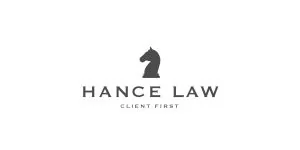Overview of Wealth Management Legal Services
A renowned business lawyer firm Hance Law Avocats (HLA) renders its services in the Grand-Duchy of Luxembourg since many years. Based on its experience HLA has developed an in depth legal expertise with a wide network, including financial service partners (banks, asset managers, Insurance companies, ...) from all size in the Grand Duchy. These are the two main pillars (Genuine legal expertise/experience and a strong network) of the HLA services offers.
Luxembourg is one of the World most prominent and safety platforms for private banking, investment funds as well as financial market services (financial and holding companies). The country is the 2nd largest international funds centre worldwide with manged assets cumulated roughly to 3 trillion Euro in 2017. Though Luxembourg is one of the smallest countries of the European Union, this constitutes an amazing amount of 40% of all inbound and outbound EU Investments.
Several factors explain its success such as being a reliable and highly efficient gateway from a tax perspective (A). Its stable, transparent and rewarding taxation system allows individuals and corporates to manage their business without triggering any taxation if they choose the appropriate strategies. This enviable position consequently rewards Luxembourg one of the best reputed places for wealth management worldwide.
Basically, two holding structuring entities do exist in Luxembourg. On the one hand, the SOPARFI (B) "Société de Participation Financière" and the SPF (C) on the other hand. Furthermore, Luxemburg offers an attractive life insurance policy (D) the "Contrat d'Assurance Vie" (CAV). The IP right protection and the future favourable taxation (E) is furthermore a relevant issue to be addressed when presenting the wealth management structure in Luxembourg. Based on its years of legal expertise and financial engineering HLA assists a range of HNWI as well as ultra-HNWI while structuring of their wealth from over the world.
HLA lawyers are dedicated to listen their clients and envisage together with the latter's the most convenient solution for their needs and situations. In this regards, HLA usually takes time to make sure that the client does understand the pros and cons of each possibly relevant solution to its situation.
A- GENERAL TAX ISSUE
Luxembourg companies are basically subject to taxation on their worldwide income and non-resident companies are subject to taxation only on their Luxembourg-source income. Companies established in Luxembourg are subject to Corporate Income Tax (CIT) at the rate of 21% and the Municipal Business Tax (MBT) at the rate of 6,75% (e.g.
Luxembourg city). There is further a solidarity surcharge of 7% calculated on the corporate income tax, which lead to a cumulated tax rate from 29,22%.
Notwithstanding the basic rules, dividends from qualified holding and capital gains realized through shares selling of qualified holding can be tax exempt from the CIT under certain criteria. This can explain the huge success of the Luxembourg holding, which can guarantee that under these conditions the dividends and the capital gains shall not be taxed.
There is an annual net wealth tax of 0,5% on the adjusted net asset value of companies in Luxembourg and taxpayers subject to CIT could be exempt under certain criteria.
Double Tax Treaties (DTTs) are signed between two countries who seek to avoid taxation on the same substance income/revenue in their respective jurisdictions. The most DTTs signed by the Grand Duchy of Luxembourg are based on the OECD Double tax treaty model.
B- SOPARFI
The Soparfi is a fully taxable company whose corporate purpose is limited to the holding of participation and related activities. It can be incorporated notably as a private limited company (S.A.R.L.) or public limited company (S.A.) and takes advantages of the so-called participation exemption and may benefit from DTTs signed by Luxembourg. Due to the fact that Soparfis' primary activity is holding and / or financing activities, it benefits from the Parent-Subsidiary European Directive of 30 November 2011 (2011/96/EU). This Directive was designed to eliminate tax obstacles for profit distributions between parent companies and subsidiary based in different Member States. Therefore, the Directive gives a tax exemption for dividends and other profits distribution paid by subsidiary companies to their parent companies and capital gains tax exemption on share selling under certain criteria. The Soparfi also benefit from the advantages of the DTT signed by Luxembourg.
C- SPF
The Family Wealth Management "Société de gestion de Patrimoine Familial" refers to a special tax regime and is exclusively dedicated to family or a small group of HNWI (such as a club of investors) acting as individuals or though non-company structuring such as trusts, foundations, Stiftung, stichting... who solely desire to manage their private wealth. The SPF does not benefit from the advantages of the DTTs signed by the Grand Duchy of Luxembourg.
However, the SPF is basically exempt from the Corporate Investment Tax and the Worth tax tough being subject to the annual tax subscription of 0,25% based on share capital and share premium. An SPF is the most widely used personal wealth management tool in Luxembourg.
The corporate purpose of a Luxembourg SPF is limited to acquisition, holding, management and disposal of financial instruments, cash and other types of assets. An SPF may not perform any type of commercial activity.
D- LUXEMBOURG LIFE INSURANCE CONTRACT (CAV)
The Luxembourg life insurance contract is a contract by which an insurance company undertakes, in return for payment of a premium, to be paid to a person (the beneficiary) designated by the insured to death (From a legal point of view, death is an uncertain event), a capital whose amount or the method of evaluation are laid down in the contract clauses.
The three contracting parties are the insured, the insurance company and the beneficiary. The company: a) bears the risk and b) agrees to pay the amount due to the beneficiary on the death of the insured. The life insurance contract Luxembourg is furthermore an investment which combines the following within the framework of a long-term investment approach.
When Luxembourg life insurance contract is used as an investment vehicle, it allows investors to combine financial and patrimonial objectives. In the past, life insurance has gradually opened to investment funds and thus to stock markets.
Similarly, its legal framework is simple, foresees means of ensuring assets transfer on good terms and sometimes with the benefit of advantageous fiscal measures, which do exist. The Luxembourg life insurance contract may invest in several investment funds at a time and is therefore said to use a "unit-linked policy". In addition, investors can access guaranteed rate monetary products.
E- LUXEMBOURG IP RIGHT PROTECTION
Luxembourg taxpayers owning a Luxembourg Intellectual Property Rights (IP rights) benefited in the past from a special tax regime introduced in 2008. A company could benefit from a tax exemption of 80% on the net income derived from royalties for the use and/or exploitation of IP rights Luxembourg as well as a tax exemption of 80% on revenue derived from a sale or an alienation of IP rights in Luxembourg.
This regime has been repealed but the Luxembourg Government introduced on 4 August 2017 a bill on a proposed new IP regime. The proposal is meant to preserve Luxembourg's tax attractiveness while complying with the new EU and international tax standards and more particularly, as far as IP regimes are concerned, with the conclusions of OECD BEPS report on Action 5 in relation to the substantial activity requirement.
Therefore, this new regime shall adequately combine two objectives: it shall allow for a full deduction of all R&D expenses for projects that do generate any commercial results while successful R&D projects shall not be penalized through excessive taxation once they are applied in real life.
The content of this article is intended to provide a general guide to the subject matter. Specialist advice should be sought about your specific circumstances.


